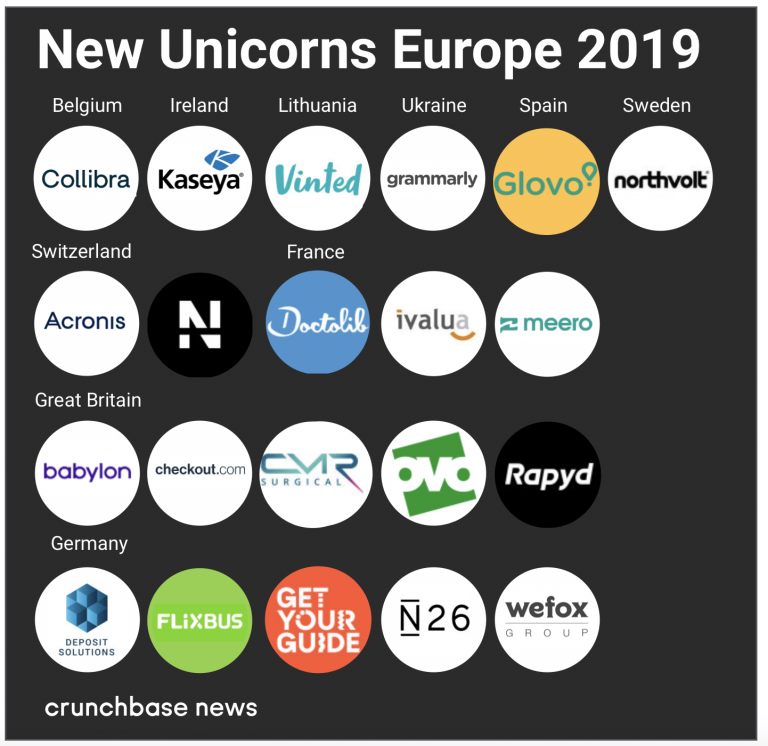British fintech investment reaches a record high
27 February 2020

Global fintech investment in 2019 fell just shy of 2018’s record with $135.7 billion invested across 2,693 deals, according to the Pulse of Fintech H2 2019, a bi-annual report on global and regional fintech investment trends published by KPMG.
Headline stats
- $135.7bn in fintech funding in 2019 across 2,693 deals
- Record of $77.1bn of funding in the third quarter
- Cybersecurity saw a 104% increase year-over-year going from $316.9m to $646.2m
- Proptech investment rose 37% to a record high of $2.6bn in 2019 from $1.9bn in 2018
- Blockchain and cryptocurrency fell from $6.3bn to $4.7bn year-over-year
Another year of growth for UK fintech
Despite Brexit uncertainty, the UK continued to be an attractive proposition for overseas investors. Investment into UK-based startups reached a six-year high and defied the global picture. The UK accounted for half of Europe’s ten biggest deals and received more than 80% of the continents’ record-breaking total of $58bn. FIS’ $42.5bn acquisition of Worldpay accounted for more than half of this number.
The UK’s figure grew substantially in 2019 to $48.5bn from $25.4bn in 2018. The funding boom is expected to increase in 2020 due to the UK’s most prominent fintech darlings seeking additional investment to drive growth in new markets and territories.
As the early fintech startups start to mature and hit their high-growth stage, they are inevitably seeking scale and profitability – expanding from their niche offerings and providing a wider range of services or becoming international.
We’ve already seen this occur this week when Revolut, a currency exchange and money transfer company, announced a mammoth $500m equity round giving it a $5.5bn valuation, therefore inheriting the title of the UK’s most valuable fintech startup after its value more than tripled.
Anton Ruddenklau, Global Co-leader of Fintech, KPMG International, said: “Over the past year, the lines have really started to blur between financial services and non-financial services – with fintech companies helping to bridge the gap.”
How did the European fintechs perform?
As the sector matured across Europe, this gained significant attention from global investors looking for new opportunities and led to numerous $100m+ funding rounds throughout the year.
- Swedish fintech Klarna closed a $460m funding round in Q3 of last year
- Germany saw a very strong year of fintech investment at $1.6 billion – led by the $470 million raised by N26 in Q3
- France’s fintech scene experienced a banner year with $1.8 billion of total investment
21 new unicorns emerged from 2019, with Germany and the UK tied with five apiece, according to figures from Crunchbase.
TechFin playing a bigger role in the global space
The number of fintech deals by global tech giants – including Alibaba Group, Alphabet, Apple, Baidu, IBM, Microsoft and Tencent – increased for the fifth straight year, with $3.5 billion invested across 46 deals in 2019.
The report predicts that 2020 will see TechFins such as Alphabet and Alibaba will increase their focus on the fintech space, and look for ways to integrate fintech in their offerings to provide more value and seamless processes for their customers.
Fintech in 2020 and beyond
Investment across Europe is expected to remain strong, with challenger banks and payments companies maturing and attracting larger deals – while investment in areas such as insurtech, regtech, B2B solutions, and wealthtech are expected to grow.
Consolidation is going to increase, with bigger and bolder M&A deals becoming the norm as continued growth becomes harder for fast-growing companies.
Ruddenklau added: “Payments is going to be very hot over the next year in the UK. There will likely be more mega-deals like Worldpay focused on the payments space as companies look to acquire customers and data. We’re also going to see payments firms looking to bolt-on open banking and data capabilities so that they can drive more success from mining their own data.”


